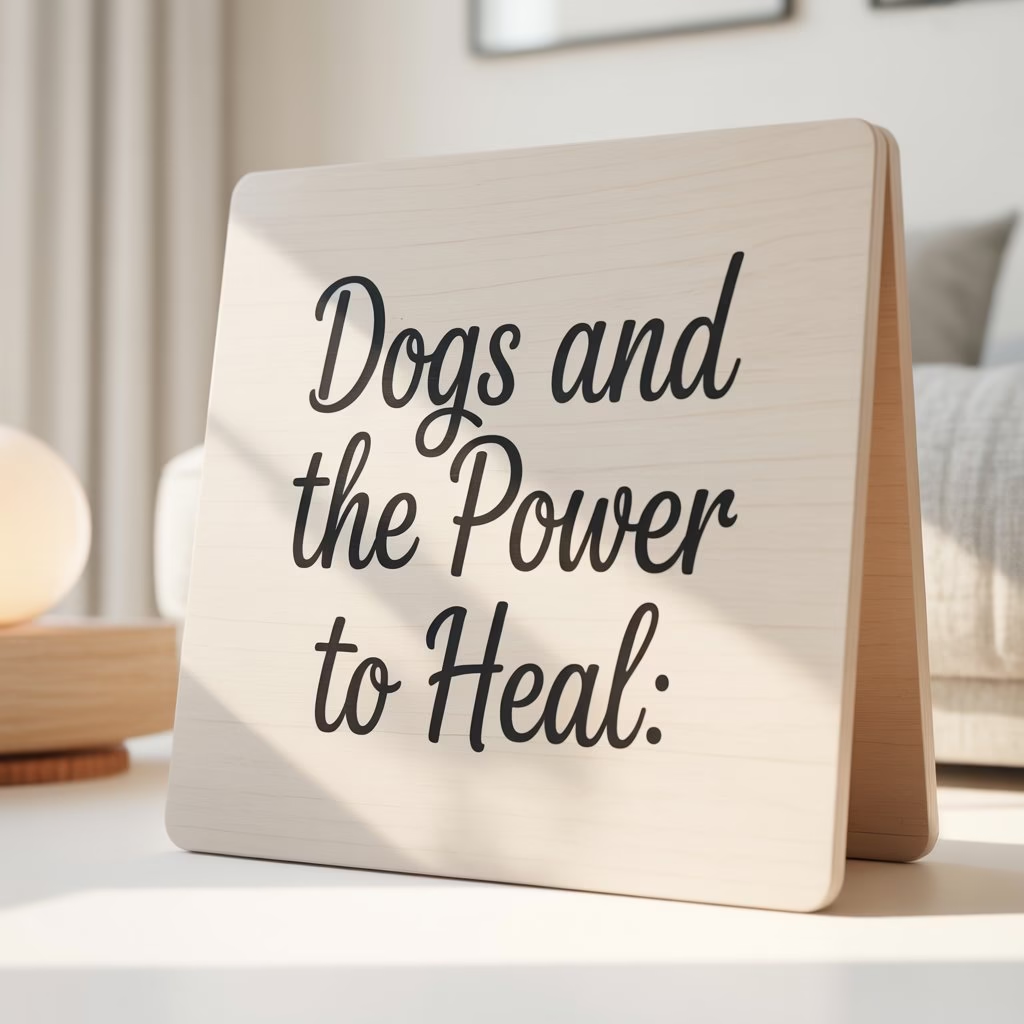In a world overflowing with digital chatter and shallow connections, it’s easy to feel unseen — even when surrounded by people. Yet one companion has been quietly mending hearts for centuries: the dog.
Dogs do far more than guard homes or fetch sticks; they heal loneliness, lift moods, and rekindle emotional warmth in lives that have grown cold.
From playful retrievers to gentle lapdogs, every wagging tail and wet nose carries the same silent promise — you are not alone. And among the many breeds that bring this comfort, the joyful charm of French Bulldog puppies beautifully captures how unconditional love can transform isolation into connection.
The Silent Epidemic: Understanding Loneliness Today
Loneliness has become one of modern society’s most pressing issues. Studies by the UK’s Office for National Statistics show that millions of adults experience regular loneliness, especially those living alone or working remotely.
This isn’t just emotional discomfort — it’s a public health concern. Chronic loneliness has been linked to depression, high blood pressure, weakened immunity, and even premature death. It can be as damaging as smoking fifteen cigarettes a day.
Yet in this quiet crisis, dogs have emerged as nature’s gentle medicine. Their affection, routine, and presence offer something far deeper than distraction — they offer companionship that heals.
The Science Behind Canine Comfort
When humans interact with dogs, the body releases oxytocin, a hormone that fosters trust, relaxation, and bonding. This biochemical reaction occurs in both species, creating a feedback loop of affection and calm.
Petting a dog for just ten minutes can lower cortisol (stress hormone) levels and reduce heart rate, leading to measurable improvements in mood and emotional balance.
Dogs quite literally rewire our brains for happiness.
They don’t need to speak or offer advice; their warmth alone becomes therapy.
From Isolation to Daily Purpose
One of the cruelest tricks of loneliness is that it removes purpose. You start to move through days without rhythm or reason. But when a dog enters your life, everything changes.
They bring structure — you wake up to feed them, step outside for walks, and end your day with companionship. Those small moments of routine become lifelines.
The act of caring for another being reignites something vital in us — empathy, responsibility, and joy.
Dogs gently force us to engage with the world again. Walks lead to fresh air, exercise, and unexpected conversations with neighbours. A simple smile exchanged between dog owners can become the first human interaction someone’s had in days.
In this way, dogs don’t just heal individuals; they reconnect communities.
Emotional Intelligence: Dogs Feel What We Feel
A dog’s sensitivity is often astonishing. They seem to sense sadness long before a single tear falls.
When their owner feels anxious, they grow quieter. When they sense excitement, they play.
This empathy isn’t a trick — it’s an evolved instinct that allows dogs to read human body language, tone, and even scent.
They don’t offer solutions; they offer presence.
And sometimes, presence is exactly what loneliness lacks.
Therapeutic Companions: Dogs and Mental Health
Psychologists and doctors now recognise the immense impact dogs have on mental wellbeing.
Hospitals, schools, and therapy centres across the UK have introduced animal-assisted therapy, where trained dogs help patients manage anxiety, PTSD, and emotional trauma.
The results are consistent and remarkable — patients feel calmer, more motivated, and less isolated. Even untrained family pets provide benefits simply through companionship.
A dog’s affection asks for nothing and heals without trying.
The Gift of Unconditional Love
Humans often love with limits — we judge, withdraw, or expect. Dogs do none of that.
Whether you’ve had a brilliant day or the worst one imaginable, they greet you with the same joy and devotion.
This unconditional love has profound emotional effects. It rebuilds confidence, teaches trust, and reminds us that we are worthy of affection simply for existing.
When life feels heavy, a dog’s wagging tail is like sunlight through the clouds — proof that love can still be simple.
Dogs and the Elderly: Healing Through Companionship
For many older adults, especially those living alone, dogs provide more than company — they provide purpose.
Caring for a dog brings routine, touch, and movement back into daily life. Studies show elderly pet owners experience lower stress levels, improved heart health, and fewer doctor visits.
Charities like The Cinnamon Trust in the UK connect senior citizens with gentle companion dogs, giving both the animal and the owner a renewed sense of belonging.
The quiet joy of waking to a loyal friend or hearing paws on the floor each morning transforms empty homes into places of warmth.
Children and Emotional Growth
Growing up with a dog helps children learn empathy, kindness, and patience.
A child can confide in a dog without fear of judgement, finding in them a friend who listens with unconditional acceptance.
Psychologists note that children who live with dogs often develop stronger emotional regulation and social confidence.
When a child feels anxious, stroking their pet can help calm their mind — an early lesson in mindfulness taught not by words but by wagging tails.
Healing in the Hardest Moments
Life brings grief, heartbreak, illness, and uncertainty. During such times, dogs provide quiet strength.
They don’t try to fix our pain; they simply sit beside it, reminding us that love is still near.
For people facing bereavement, recovery, or mental illness, a dog can be the thread that holds daily life together. Even their small routines — feeding, walking, grooming — offer grounding when everything else feels out of control.
Dogs as Bridges to Human Connection
It’s not just emotional health that dogs enhance — they also build social bonds.
Dog parks, walking paths, and training sessions create spaces where people interact naturally. Even brief exchanges can foster community.
In an increasingly isolated world, dogs act as social catalysts, connecting strangers who might otherwise never meet.
Many friendships — and even relationships — begin with a shared smile over two dogs greeting each other.
Healing Beyond Words
Perhaps the most beautiful part of a dog’s companionship is that it requires no words.
They don’t demand conversation, validation, or explanations. Their healing lies in their quiet constancy — the soft weight of their head on your lap, the comfort of their steady breathing.
In a culture obsessed with verbal reassurance, dogs remind us that love doesn’t always need to be spoken to be felt deeply.
The Ripple of Joy: When Healing Spreads
When one person feels less lonely, their entire world brightens. That positivity spills into other areas — relationships, work, and community.
This ripple effect explains why therapy dogs are now used in workplaces and hospitals — not merely to cheer people up, but to cultivate empathy and calm across groups.
Dogs make us kinder, softer, and more human — and in a disconnected world, that’s revolutionary.
Choosing a Companion: A Bond, Not a Buy
If you’re considering bringing a dog into your life, remember that companionship is a commitment of the heart.
It’s not about choosing a fashionable breed or a social media prop — it’s about finding a friend who fits your rhythm and energy.
Whether you choose a large, loyal guardian or a small, affectionate lapdog, each breed offers a different kind of love. For those seeking a gentle, social companion who thrives on human contact and doesn’t need hours of exercise, French Bulldog puppies are a wonderful example of how affection and adaptability can heal a home.
But no matter the breed, what truly matters is the bond.
A dog doesn’t need pedigree to give love — just a place in your life and heart.
Lessons from a Loyal Heart
Dogs live without grudges, love without calculation, and forgive faster than any human ever could.
Their lives are short, but their lessons are eternal.
They teach us to celebrate small joys, to stay present, and to love without fear.
Their companionship turns loneliness into belonging and quiet evenings into peaceful contentment. They remind us that happiness doesn’t always come from grand moments — sometimes, it’s just the feeling of being loved by someone who never leaves your side.
Conclusion: The Love That Heals the Human Heart
Dogs are not just pets — they are emotional healers wrapped in fur.
They turn empty houses into homes, tears into laughter, and solitude into shared silence.
In their company, people rediscover what it means to feel safe, connected, and loved without condition.
They don’t promise to fix your problems, but they will walk with you through every storm.
And that, perhaps, is the purest form of healing — love without expectation, loyalty without reason, and comfort without words.






